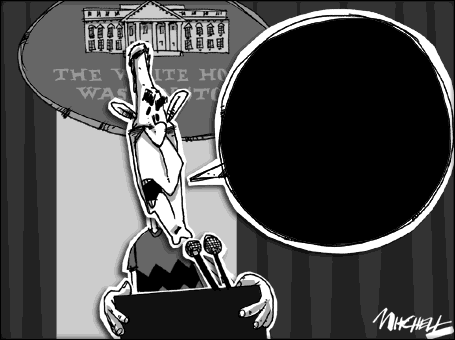The war of words between President Bush and Iranian President Ahmadinejad continues to intensify. As Bush reaffirmed his warning on Wednesday that a nuclear-armed
Centrifuges produce uranium gas, which can either be developed into fuel for a nuclear reactor or – at higher levels of enrichment – fuel for a nuclear bomb. AP notes that "the number 3,000 is the commonly accepted figure for a nuclear enrichment program that is past the experimental stage and can be used as a platform for a full industrial-scale program that could churn out enough enriched material for dozens of nuclear weapons, should
But examining this issue from beyond the somewhat limited perspective we are offered by the Bush administration or the mainstream media, it is not far-fetched to argue that Ahmadinejad's rhetoric and actions may be as much of a response as they are a catalyst in the international controversy regarding the country’s nuclear program.
Statements that Iran "could not care less" about UN Security Council resolutions because they are based on a "wrong report" seem on provocative-par with Bush's recent discussions of "WWIII," a "nuclear holocaust," and threats of military action against the Islamic state. The battle of words has certainly intensified in opposition to the goal of trying to prevent a battle of nuclear weapons.
In addition to a war of words, other recent activity from
It seems that it might be a valuable lesson for the Bush administration to learn that any action short of military engagement does not automatically constitute "diplomacy." The recent debate in the
A word of advice to the Bush administration: rather than just using sticks and bigger sticks in our effort to prevent





